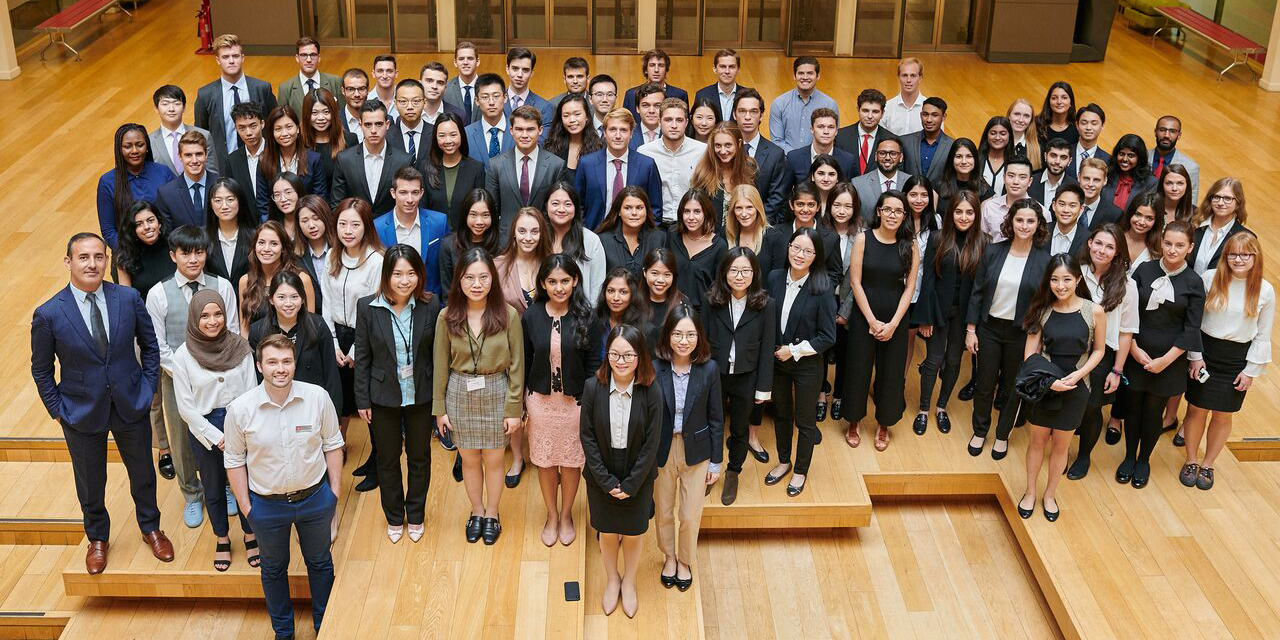Ambroise Jeanty, Master’s in Management (MiM) student, shares five valuable tips when applying for the MiM and completing your statement of academic purpose, an essential requirement for the application.
Before providing any tips on how to write a statement of academic purpose when applying to the MSc in Management at LSE, it is important to remind you of the purpose of this statement.
A statement of academic purpose is an opportunity to talk about you, and why you want to enrol on a particular course. It will help the Programme Director and the recruitment team to understand you and your suitability for the course that they are offering.
The tips that are going to be provided are here to help you, however, these are not the only way to write a statement of academic purpose. You can use them as a checklist to be sure you are not forgetting any aspects.
Tip 1 – Tell a story with your statement of academic purpose
To write a good statement of academic purpose, the first tip will be to have a story to make it more interesting. To be more precise, a theme needs to run throughout your statement of academic purpose. Currently, you have an academic background with professional and extra-curricular experiences. Make sure you express that taking the MSc in Management will help you to go further in your career. In the long term, you want to pursue a career in a specific field. All of these must be coherent.
To begin with, you can present yourself shortly in a paragraph: your current degree, your current job position if you are working, and your role in a society you are involved in.
Tip 2 – Use STAR method to present yourself
When you are writing the subsequent paragraphs, the STAR method will be quite useful. This method is the following:
– Situation: Describe the context;
– Task: Provide details on your responsibilities;
– Action: Demonstrate how you responded or took charge;
– Result: Explain the impact you made or the lessons you learnt.
This method will allow you to present your extracurricular activities and your internships. It will also be a way to link your experiences back to Management. Moreover, it will be a way to showcase your skills. For instance, your leadership and your time management could be demonstrated using this method. It is important to mention some key business skills such as customer service, dealing with invoices or knowledge of basic accounting, and some soft skills like being a good collaborator, communication skills, or being self-motivated.
Tip 3 – Explain how the degree is suitable for you and your career specifically
Then, you could explain how this degree aligns with your long-term goals and how it aligns with your academic interests. It can be done by mentioning which modules on the programme you’re interested in and why. By doing so, it showcases your motivation as you already know some of the modules studied in the programme.
Furthermore, it would be essential to show to the reader that you are fitted to the degree. This can be done through a variety of ways. For example, you can state if you have already studied Management or modules related to Management and explain what you learnt. You could also speak briefly of an essay related to Management and reveal the conclusions you reached. In addition, it could be done by mentioning business books or online courses (e.g., MOOCs) and presenting what you have learnt.
Additionally, you could write a paragraph to demonstrate that the degree is essential for you in order to achieve your long-term career goals. This paragraph would be a way to remind the reader what those goals are.
Tip 4 – Mention how you would contribute to student experience at LSE
Following this paragraph, it can be relevant to mention how you would be involved in the student community life. You could go on the Student Union website and find a society that you would like to join if you were accepted at LSE. It would also allow you to present one of your interests.
Tip 5 – Finish with a strong statement
To end on a good note, you could write something like:
– I have the […], […], and […] to study Management at a higher level.
– I have no doubt that my […], my […], and my […] would enable me to participate effectively in class discussions.
The three blanks need to be impactful words.
Bonus tip – Proofread your statement of academic purpose
Finally, it is important to proofread your personal statement a few times. You could also show it to teachers, family members, and friends. It must not contain any spelling, punctuation, or grammatical mistakes. I would also recommend respecting the number of words required to be written.
You can follow and connect with Ambroise on LinkedIn.
Learn more about the Master’s in Management programme.







Extremely useful! I used these tips to get into the MiM programme at the LSE